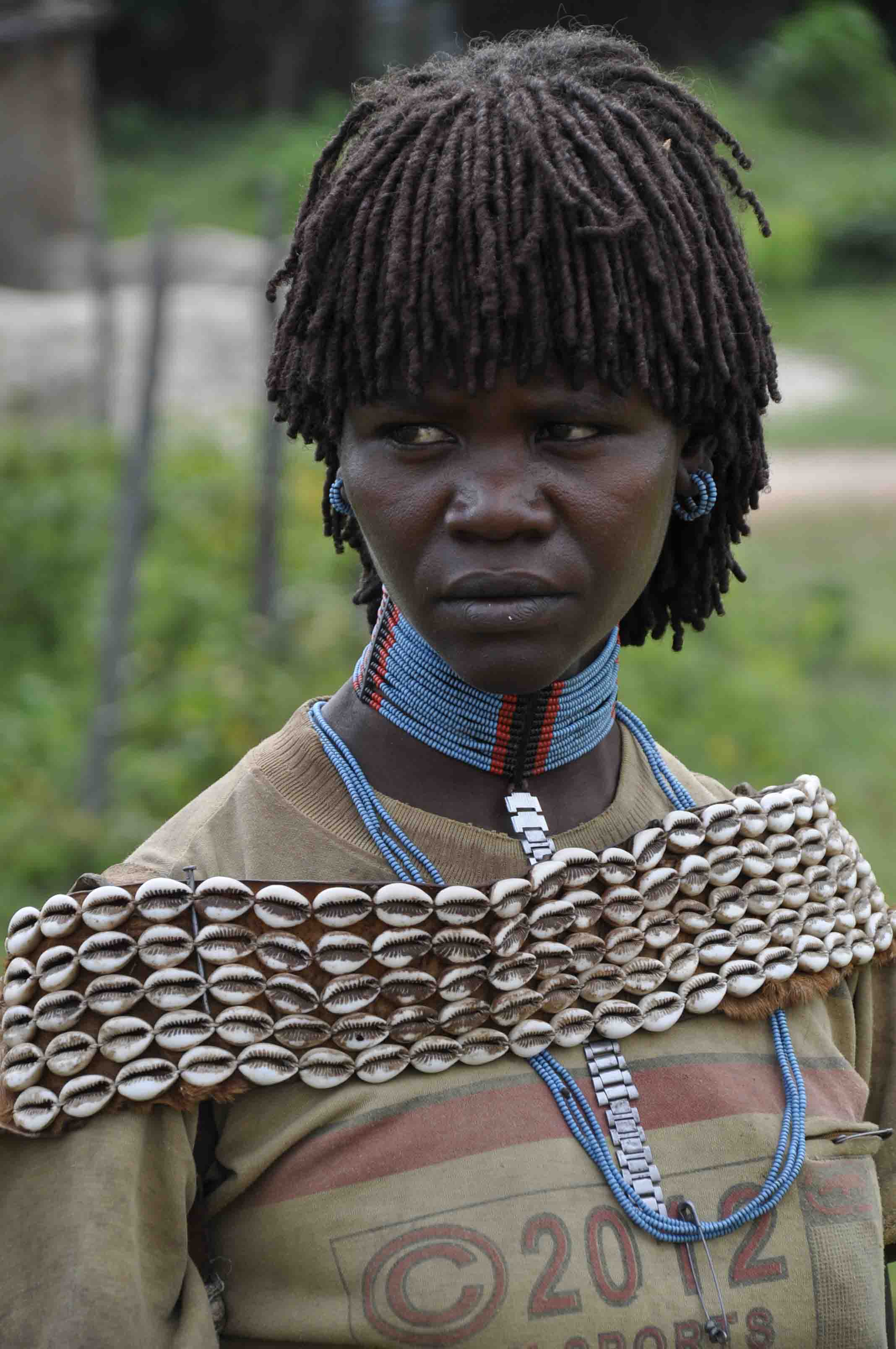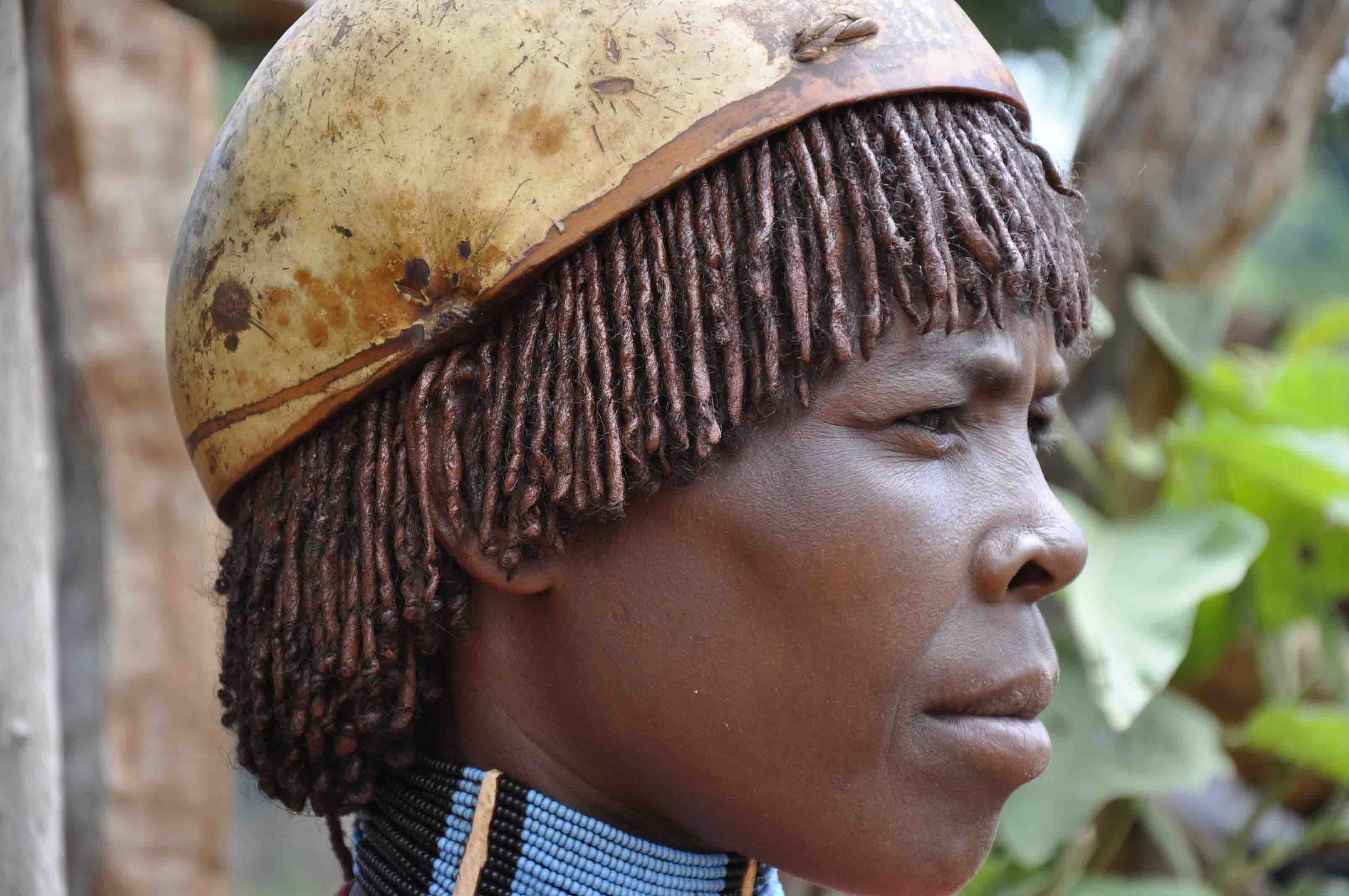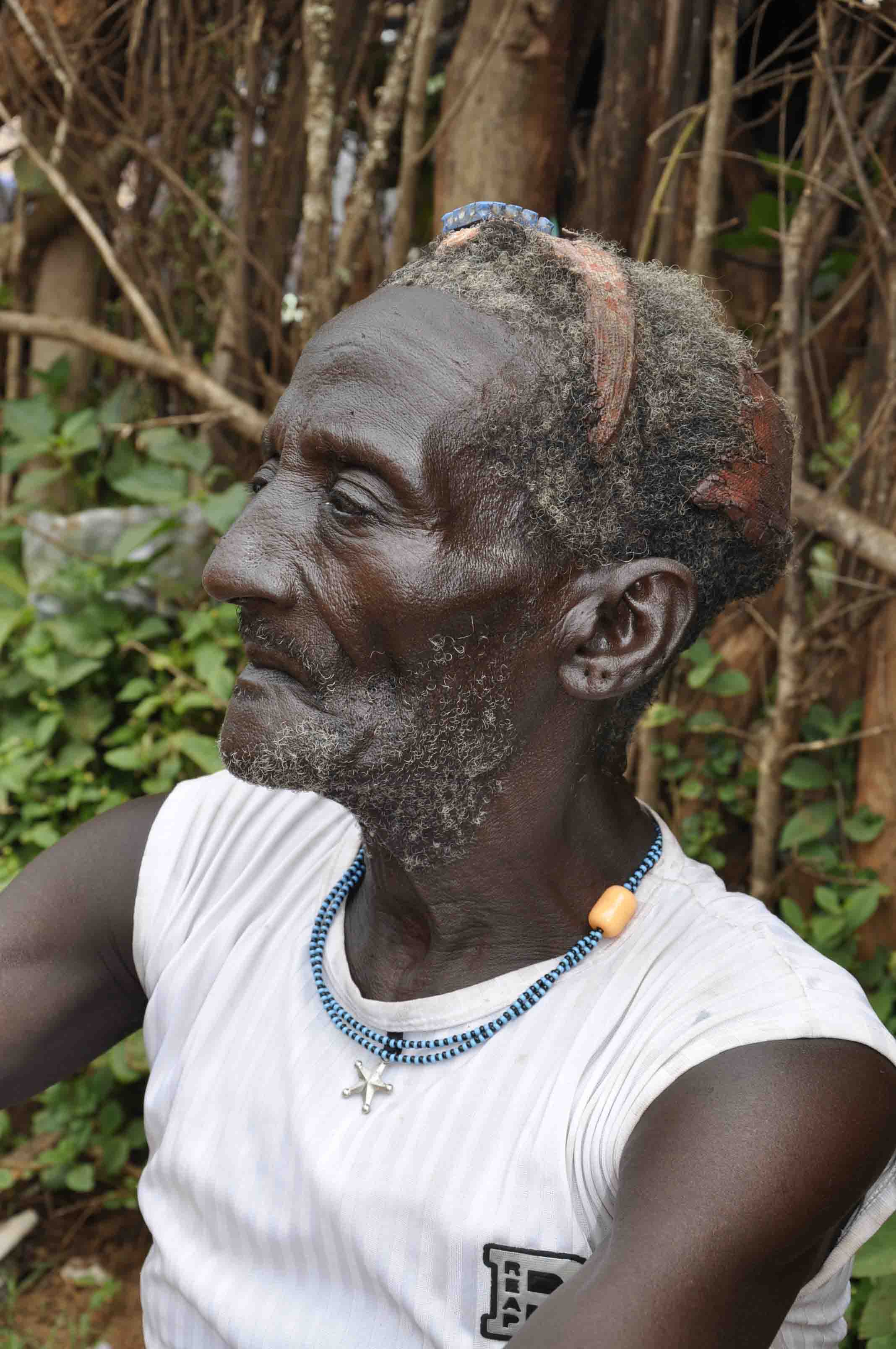Benna



The Benna nationality is one of the nationalities in Benna-Tsemay district. It is mainly found In Bori, Alduba, Shaba, Arego, Qoqa, Befo, Ansonda Ururi and Mukecha localities. They live in mountainous area. But the climate is that of lowland. Tsemay, Ari, Konsita, Hammer, Kara and Amhara communities live together with Benna.
Different parts of the society in the nationality give different opinion about their origin and settlement. Gata from Ari, Gershema from Malea, Bennet from Domase, Peren from Borena and Welmake from Kara communities came from those areas. Before their settlement there were indigenous people in the area. The indigenous people were called Gassi. Generally the elderly tell that Benna nationality are the results of the society who come from different directions and the indigenous people.
The Benna language is an Omotic language. It is used as a mother tongue. It is similar to Ari, Hammer and Kara languages. Members of the nationality in addition to their mother tongue speak Hammer, Malea, Tsemay, Ari and Kara nationalities languages to some extent.
Including the sub-tribes under each , there are two tribes in Benna. They are called Binas and Gelabo. The sub-tribes under Binas are Geta, Bennet, Gersheme, Godana, and Walmek. Those under Gelabo are Gasi, Ara, Binkan, and Peren.
Sub-tribes under Binas marry to the sub-tribes under Gelabo. They are not married to their own sub-tribe. But The Sezhi sub-tribe which says it belongs to the majour tribes has marriage relations with both sub-tribes.
Previously, the nationality lived on beekeeping. They buy grain, weapon and others by exchanging the honey. Now they mainly rear cattle and till the ground. In Benna having many cattle is counted as a symbol of being prosperous.
Cultural Administration System
The cultural administration system of the nationality has parts for secular and spiritual duties. It has the King Bita, Qoggoo and Goold as structures. The supreme power of the nationality is Bita. He is elected from the Getta tribe. The elderly selected from the nationality present lamb, empty honeycomb and fresh milk to the king. He pray for them so that they get honey, peace and to avoid evil. He prays for the god called Berjo.
This prayer is done at the beginning of the nationalitys new year in January.
Qoggoo is selected from all sub-clans. His main duty is to pray in turn for those who pray including the king. The Qoggoo does this when he is asked to do so. Qoggos prayers bring rain, eradicates disease, avoids expansion of flocks of birds, keeping wild animals not to hunt domestic animals. He prays by calling the name of Berje in his tribe.
Goold is mainly known for his ruling of his neighbourhood administration. Each year when crop ripen, he avoids old fire, makes new fire by friction and roasts the fresh maize so that it is eaten. He also sows seeds first and afterward allows others to sow after him. He ties speal on the necks of children to perform the order of Laazi. This is similar to Christening in the Orthodox church.
If there is enough product when the child is born the Laazi order is performed from the first month of the birth on. But if there is not enough product it is waited until there is going to be surplus product. Qoggoo is elected from all the tribes. Passing of power is based on inheritance. But as far as the society believes in, Goold is elected from any tribe.
In the nationality The Bitta (king) is elected from the Geeta tribe only. Passing of power has its own ceremony. This handing of power takes place after the king dies. His first son takes the power of the king (landlord?). Even though his first son is not competent in ruling, he is advised by the elderly. His power (authority) is not given to somebody else. If the heir is a small child, his mother steps in as a reagent until he is old enough to rule. If the king has a brother or uncle, they can also substitute the deceased. When he is enthroned he ties Kale (a kind of thread from a plant) on his neck to confirm he has taken power.
Marriage Ceremony
There is a precondition in Benna nationality to get married. It is a must that a gentleman jumps over cattle before he gets married. Before doing this he tours his relatives and tells he is ready for the jumping. After he properly completes jumping over the cattle he ties a leather belt on his waist to notify he has jumped. The leather belt is finally tied on the neck of his would-be fiances.
After the cattle jumping is over the fiancee making process continues. Until a fiancee is looked for him, the jumper doesnt eat anything else except milk, honey and meat. Before his jumping his families sent elderly to the families of the girl whom they wanted their son to marry. If there is no girl selected by his family, he looks for a girl from tribes which are not of his.
When he gets the girl he forces her to eat from his hand. If he feeds her it is believed he has made her his fiancee. She is not given to somebody else. The girl might be barely a baby during this time. So she can wait 15-20 years with her family. After this he either sends the elderly or forces her or makes marriage balls to make her marry to him. A wife who came after cattle jumping is called Binyare. She can be identified by the ornament on her neck. The wife next to Binyare is called Mari.
The other type of marriage in the nationality is Baskin. It is an inherited marriage. In this marriage when an older brother dies, younger brother takes over his older brothers wife. However; the children the younger brother gets from the wife of his brother are called by the name of the older brother. If the deceased doesnt have a brother, member of his tribe take over his wife.
Koli is a kind of marriage that is practiced by the agreement of the family. The stick which is carried by the elderly when they go to the families of the female whom they want for the boy is called Koly. When a wife dies there is a condition in which the husband marries to her sister. This kind of marriage becomes practical if there is close relation between the two families. Even though a person can have up to ten wives based on his economic capacity, cattle jumping takes place only for the first wife.
During cattle jumping a special dancing ceremony takes place. The dancing continues from the time when crops are ripe till harvest time. Female married relatives of the jumper sit in a hall and play a play called Yisaro Adagoino. Female married relatives of his father and young girls as well as aunts of his mothers side are whipped. When they are whipped they chant by mentioning braveness of the jumper, number of his cattle and other things. However; married women from the mothers side dance in the hall. They do not become victims of the whipping.
In another way during the jumping period young boys and girls together dance the traditional play Evangadi starting from about nine oclock in the evening. For making the play colourful, they wear a bell like object called Warwerra on their feet. For making the clapping strengthened, they use a wooden material called Qoqa.